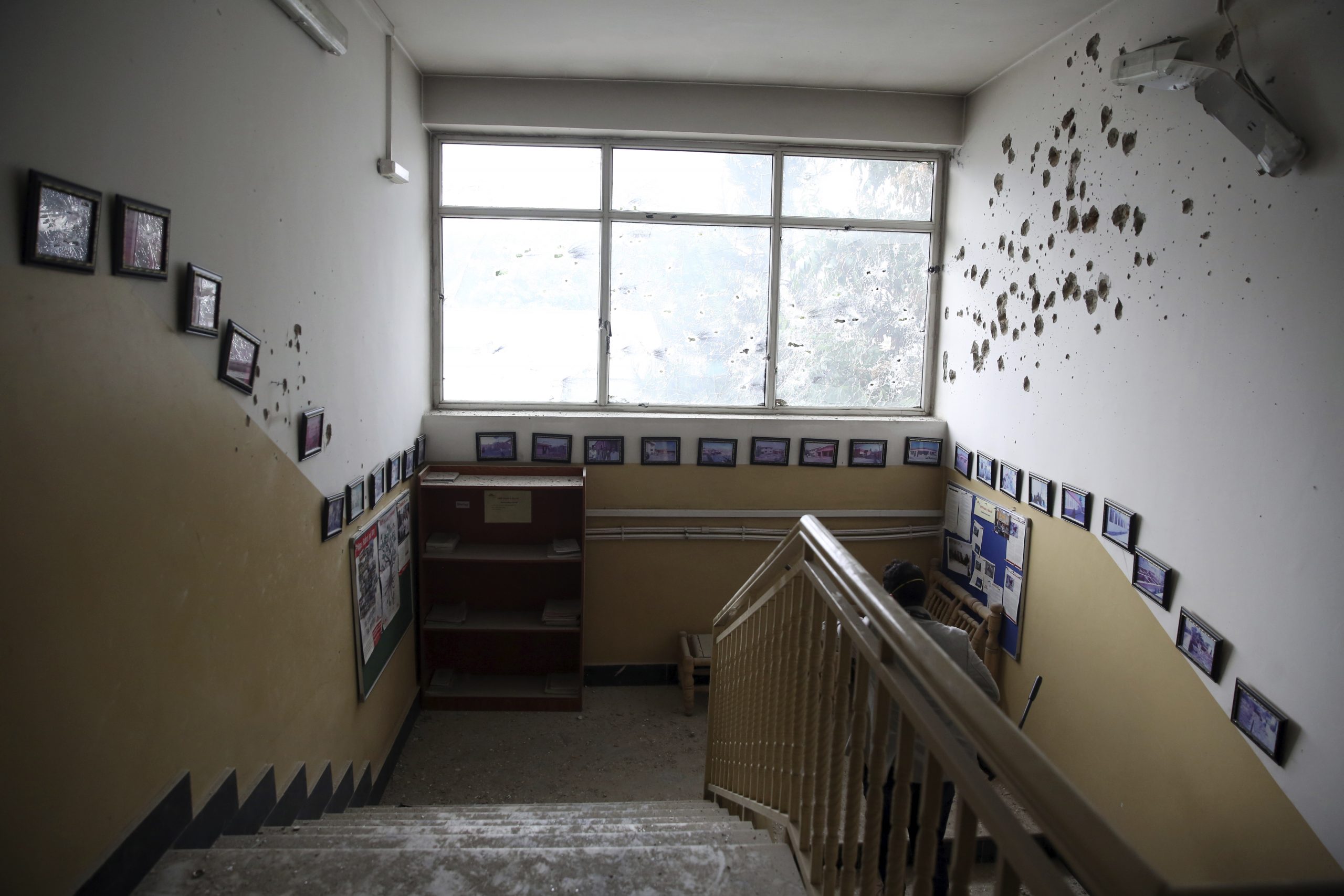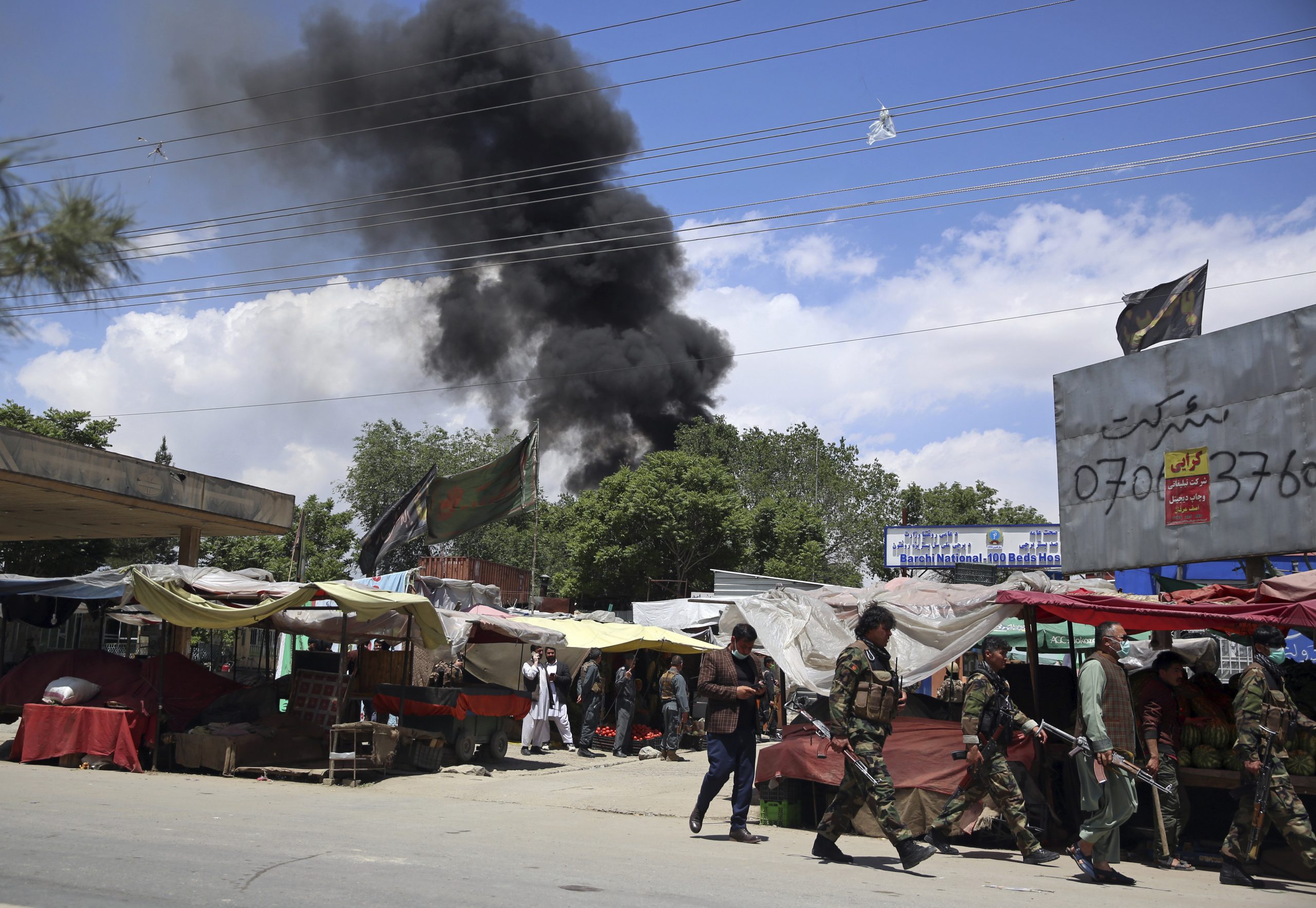Tuesday was a bloody day in Afghanistan as dual attacks rocked the country.
Gunmen stormed a 100-bed maternity ward in Kabul and killed at least 16 people, including mothers and newborn babies. At least 16 others were wounded in the attack, which took place at Barchi Hospital, where Doctors Without Borders runs the maternity ward. Dozens were evacuated, and the militants were eventually killed by Afghan security forces.
The attack occurred in the Dashti Barchi region of Kabul, which is home to members of the Hazara ethnic group, who are predominantly Shi’a Muslims, a contrast to the majority of Afghanistan, which is largely Sunni. No group immediately claimed responsibility for the attack in Dashti Barchi, although Hazara neighborhoods have been targeted by the Islamic State through its Khorasan Province branch.

In March, 32 people were killed when IS-KP gunmen opened fire at a ceremony attended by opposition leader Abdullah Abdullah and other politicians. The ceremony was marking the death of Abdul Ali Mazari, a Hazara leader and important figure in Afghanistan’s Shiite minority.
Also Tuesday, at least two dozen people were killed when a suicide bomber attacked a funeral in Afghanistan’s Nangarhar province. The funeral was for the commander of the Kuz Kunar district’s police force, Shaykh Akram, who had died of a heart attack the day before. IS-KP claimed responsibility for the attack on Tuesday.
In a message posted to encrypted communication app Riot, the terrorist group named the individual who carried out the attack and said he used a suicide vest to cause the explosion, according to a translation provided to the Washington Examiner by the Middle East Media Research Institute.
The Taliban, which in addition to IS-KP, is active in Nangarhar province, denied involvement in either of the attacks through its spokesmen on Twitter.
“Attack in Dashti Barchi area of Kabul city has nothing to do with the Mujahideen of the Islamic Emirate,” Taliban spokesman Suhail Shaheen said. “Blast at a funeral in Khewa district #Nangarhar is not the work of the Mujahideen of the Islamic Emirate. The Islamic Emirate condemns such actions,” he wrote in a second tweet.
The attacks come a day after three senior members of ISIS, including the group’s regional leader, were captured in Afghanistan. ISIS’s leader in South Asia, Abu Omar Khorasani, was among those arrested on Monday.
Secretary of State Mike Pompeo condemned the dual attacks in a statement on Tuesday.
“Any attack on innocents is unforgivable, but to attack infants and women in labor in the sanctuary of a hospital is an act of sheer evil,” Pompeo said. “Terrorists who attack mourners lining up for prayer at a funeral are only seeking to tear apart the bonds that hold families and communities together, but they will never succeed.”

Pompeo also suggested in the statement that “the Taliban and the Afghan government should cooperate to bring the perpetrators to justice. As long as there is no sustained reduction in violence and insufficient progress towards a negotiated political settlement, Afghanistan will remain vulnerable to terrorism.”
Juan-Pedro Schaerer,the head of delegation in Afghanistan for the International Committee of the Red Cross said in a statment to the Washington Examiner on Wednesday that in additon to Tuesday’s shooting, the country has suffered many attacks in the past that have targeted healthcare infrastructure.
“This latest attack is deeply shocking and represents an outright violation of international humanitarian law,” Schaerer said. “In a time when the already stretched health system in Afghanistan is battling the COVID-19 outbreak, this appalling attack not only has killed people seeking and providing healthcare, but it will also deprive the community of life-saving services in the future.”
The Taliban has stepped up attacks against the Afghan National Defense and Security Forces in recent weeks, despite a peace accord between the militant group and the United States that was signed was signed on Feb. 29 by U.S. special envoy Zalmay Khalilzad and Taliban political chief Mullah Abdul Ghani Baradar.
Given the increased violence by the Taliban, Afghan President Ashraf Ghani on Tuesday called for security forces to go on the “offensive” against the Taliban and other groups such as IS-KP.
“In order to provide security for public places and to thwart attacks and threats from the Taliban and other terrorist groups, I am ordering Afghan security forces to switch from an active defense mode to an offensive one and to start their operations against the enemies,” Ghani said, according to Reuters.
The CIA declined to comment to the Washington Examiner about the attacks or who is thought to be behind them when contacted Tuesday afternoon.

